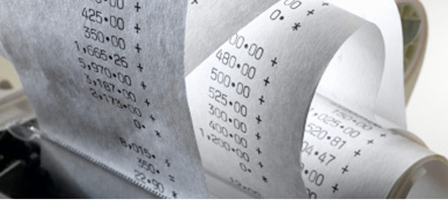REFINANCED MORTGAGE INTEREST MAY NOT ALL BE DEDUCTIBLE
Over the past few years, mortgage interest rates have dropped significantly and homeowners in increasing numbers are refinancing their home mortgages and in the process, have extended the term of the loan. Many of these homeowners frequently take additional cash out of the new loan to pay down other debts, finance education, buy a car, etc. In doing so, homeowners may be unwittingly creating a situation where part of their home mortgage interest may no longer be deductible. Generally, the mortgage interest that you may deduct on your home includes the interest paid on the acquisition debt and $100,000 of equity debt, provided the combined debt does not exceed the value of the home or $1,100,000.
The root of the problem is that acquisition debt is not a fixed amount, and it steadily declines to zero over the term of the original purchase mortgage. If that mortgage is refinanced and the new term extends past the term of the original mortgage or the amount of the mortgage is increased, then the amount of the replacement debt that exceeds the original acquisition debt will no longer qualify as acquisition debt. This still may not present a problem so long as the replacement debt never exceeds the original acquisition debt plus the allowable $100,000 of equity debt illustrated in the figure below. The green shaded area represents the debt on which interest would be deductible as home mortgage interest while the red shaded area represents a the portion of a refinanced debt on which the interest would not be deductible as home mortgage interest.
Example: From the illustration above, the home was refinanced in the 15th year for $300,000. At the time of the refinance, the original acquisition debt plus the $100,000 equity debt totaled $250,000. Therefore, the amount of interest from the new $300,000 debt will be limited to the interest on $250,000 or 83.3% of the total mortgage interest (250K/300K).
If you have or might refinance, it is imperative that you retain a record of the terms of the original acquisition debt in case you exceed the debt limitation and need to prorate your interest deduction.
When refinancing, you also need to watch out for the Alternative Minimum Tax (AMT). The AMT is another way of computing tax liability that is used if it is greater than the regular method. Congress originally conceived the AMT as a means of extracting a minimum tax from high-income taxpayers who have significant items of tax shelter and/or tax-favored deductions. Since the AMT was created, inflation has driven up income and deductions so that more and more individuals are subject to the AMT.
When computing the AMT, only the acquisition debt interest is allowed as a deduction; home equity debt interest is not. Neither is the interest on debt for unconventional homes such as boats and motor homes, even if they are the primary residence of the taxpayer.
Before you refinance a home mortgage, it may be appropriate to contact this office to determine the tax implication of your planned refinance and see if there are any other suitable alternatives.







Leave a Reply
Want to join the discussion?Feel free to contribute!